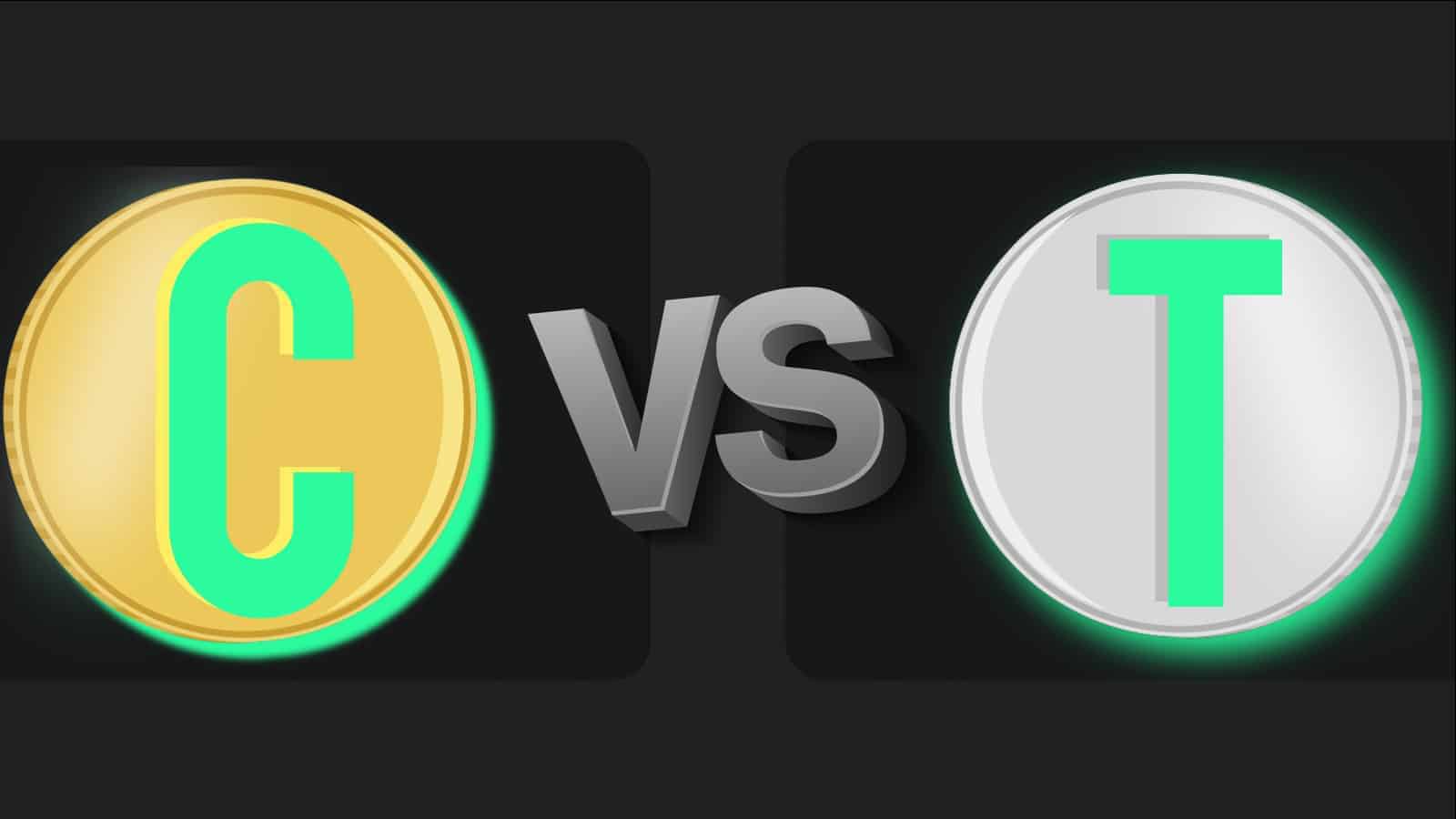The world of cryptocurrency can often be a bit confusing and intimidating, especially when you have to distinguish between coins vs. tokens. Too often, we use these terms interchangeably. But there are some key differences. Understanding the differences between coins vs tokens is important for anyone who’s asking, “What is cryptocurrency?”
Crypto Has Its Own Vocabulary
Much of this uncertainty arises from the technical nature of crypto. In particular, cryptocurrency is built on blockchain. And this technology tends to be very technical. As a result, blockchain can be hard to fully understand without a decent amount of technical knowledge.
The other big challenge has to do with language. To put it simply, the cryptocurrency community is still inventing its own vocabulary. Many times, words get thrown around without very much clarity or consistency.
This guide will help address some of these issues. In particular, it will explain two very important terms: coins vs tokens.
The Main Difference Between Coins vs Tokens
When it comes to coins vs tokens, the main difference is their construction. To start with, crypto coins have their own independent blockchain.
The blockchain that undergirds a coin functions all on its own. This is what verifies all transactions, what keeps the coin secure, and what gives the coin its value.
On the other hand, a crypto token does not have its own blockchain. Rather, a token is built on top of an already existing blockchain.
In some cases, a token eventually transforms into a coin. When that happens, the maker of the token will come up with a new blockchain. But until then, a token functions by way of an existing blockchain.
You can think of it like construction. What is blockchain? It’s essentially the foundation. It’s what holds up the currency, the same way a foundation of a building holds up the entire structure.
Using this metaphor, a crypto coin is a brand new building. It requires its own foundation and it does not rely on any other buildings for its structure.
On the other hand, a token is like an addition to a building that already exists. To add another floor to a building, you don’t need to pour an entirely new foundation. You build on what’s already there. That’s basically how a crypto token works.
Coins, Altcoins and Tokens

With this basic concept in place, you can start categorizing the thousands of cryptocurrencies into a couple main parts.
First are crypto coins, complete with their own unique and independent blockchain. Importantly, Bitcoin (BTC) is what really put this type of cryptocurrency on the map. In particular, Bitcoin established a reliable code for executing a decentralized ledger to support the coin.
Since the launch of Bitcoin, there have been several coins that have essentially branched off of Bitcoin’s original code. Typically, these coins make slight alterations to Bitcoin’s blockchain.
These include coins like Namecoin (NMC), Peercoin (PPC), Litecoin (LTC), and others. Since these types of coins are derived from Bitcoin’s foundational code, they’re often called “alternative coins,” or “altcoins” for short. Altcoins are an important subset of crypto coins, despite a recent downturn in the altcoin market.
In contrast to coins, and their subset of altcoins stands tokens. Tokens do not use their own brand new blockchain. Similarly, they also do not function as an alteration of Bitcoin’s original blockchain. Rather, they exist on top of a preexisting blockchain.
Ethereum (ETH) has become one of the go-to foundations for tokens. They’ve made it incredibly easy and streamlined for people and companies to create and launch their own tokens by building on top of their underlying blockchain.
Coins vs Tokens: How We Use Them
The real-world use of coins and tokens is another critical piece of understanding coins vs tokens. In general, coins derive their own value by way of their independent blockchain. This means they’re fungible and tradable. Similarly, you can divide crypto coins into smaller units of value, but that value remains consistent.
As a result of all this, coins can be traded relatively easily. They can also be converted into fiat currency in a fairly straightforward exchange.
Put simply, crypto coins primarily function as their own unique currency. Increasingly, coin holders can purchase products and services with coins. Additionally, you can trade coins like investments.
On the other hand, tokens are used primarily in initial coin offerings, known as ICOs. These are an increasingly popular way for new businesses to crowdsource startup capital.
Basically, a company will use a blockchain platform like Ethereum to create and launch its own token. Investors can purchase tokens and hold them for future use or trading.
Companies use the funds raised in the ICO to begin operating. For token holders, the tokens function essentially as a share in the company. In some cases, the company may transition the token to become a coin. When that happens, token holders convert their tokens into coins, which can then be used in the regular crypto landscape.
Conclusion: What it all Means

Ultimately, coins and tokens are similar in that they both function as forms of cryptocurrency. As such, they both rely on blockchain technology.
The main difference is how the developer has built them. Coins have their own independent and unique blockchain. Tokens are built on top of an already existing blockchain.
This is primarily a technical difference. And that may or may not be relevant to you. But in many cases, people care less about the technical side of cryptocurrency and more about how it can generate income. In this latter case, it may be more relevant to understand the question of coins vs tokens in terms of real-world use and potential.
Coins are essentially their own, independently functioning form of currency. Some consumers like using coins to make real-world purchases. Others are “hodlers.” These folks are into coins as an investment and are holding out for a sharp increase in a coin’s value.
On the other hand, tokens are typically linked to fundraising efforts. In this way, people who buy and hold tokens are usually doing it as a way of investing in a startup. But instead of waiting for a public offering, tokens can be purchased directly through an ICO. For many, tokens make investing in startup companies much easier and more accessible.
So which should you buy? It depends on what you want out of a cryptocurrency. Either way, this guide will help you understand the key differences between coins vs tokens.

